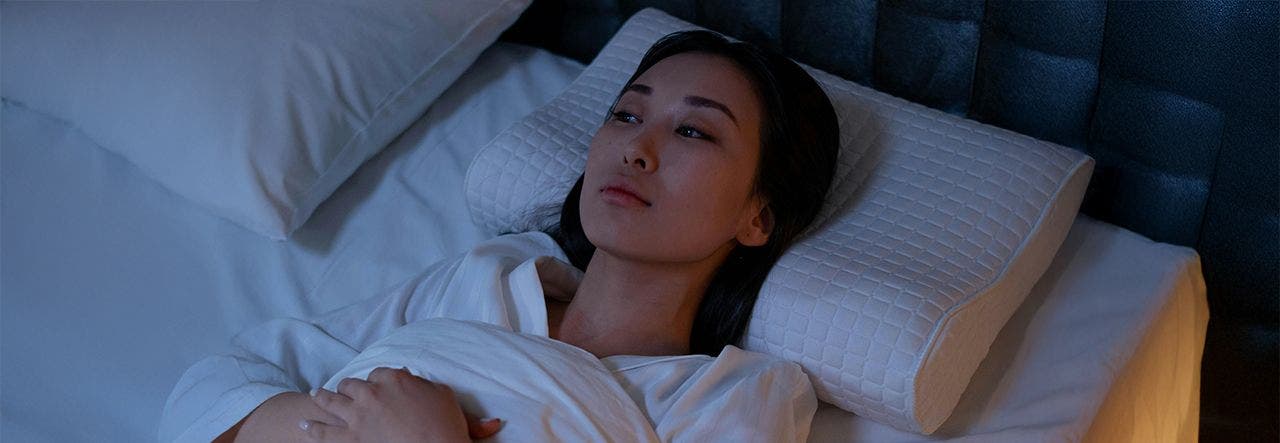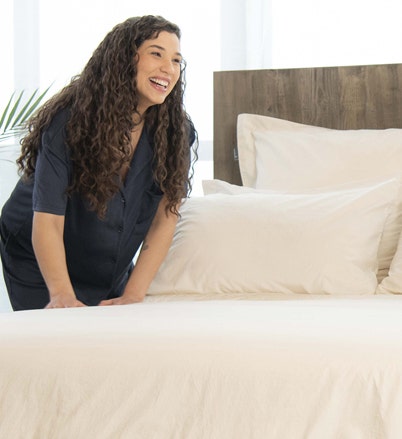Is there anything worse than a sleepless night spent tossing and turning? Few things are as frustrating as feeling tired all day but lying wide awake when it's time to sleep. If you're thinking, "I can't sleep – what should I do?", you're not alone. Many people wonder what to do when you can’t sleep, and there are plenty of reasons why this might happen. Understanding these reasons can help you break the cycle of tossing and turning. Let's explore the signs, causes and remedies for insomnia.
The Science Behind Sleep and Fatigue
Sleep is regulated by two systems in your body: your circadian rhythm and your sleep drive.
- Circadian Rhythm: This 24-hour internal clock helps to regulate when you feel sleepy or alert. Natural light and consistent sleep schedules keep this rhythm in check, but irregular sleep patterns or late-night screen use can throw it off, leaving you tired but unable to sleep.
- Sleep Drive: The body’s natural pressure to sleep builds throughout the day, but disruptions – like napping too long or consuming caffeine – can weaken sleep drive, making it harder to fall asleep at bedtime.
These systems can be disrupted by modern lifestyles, leading to a phenomenon called sleep-wake misalignment. Such misalignment may be why you can't fall asleep and affect the quality of your rest. Understanding these systems that work together in your body – along with their triggers – is a major key to reclaiming a healthy sleep cycle.
Sleep Quality vs. Sleep Quantity
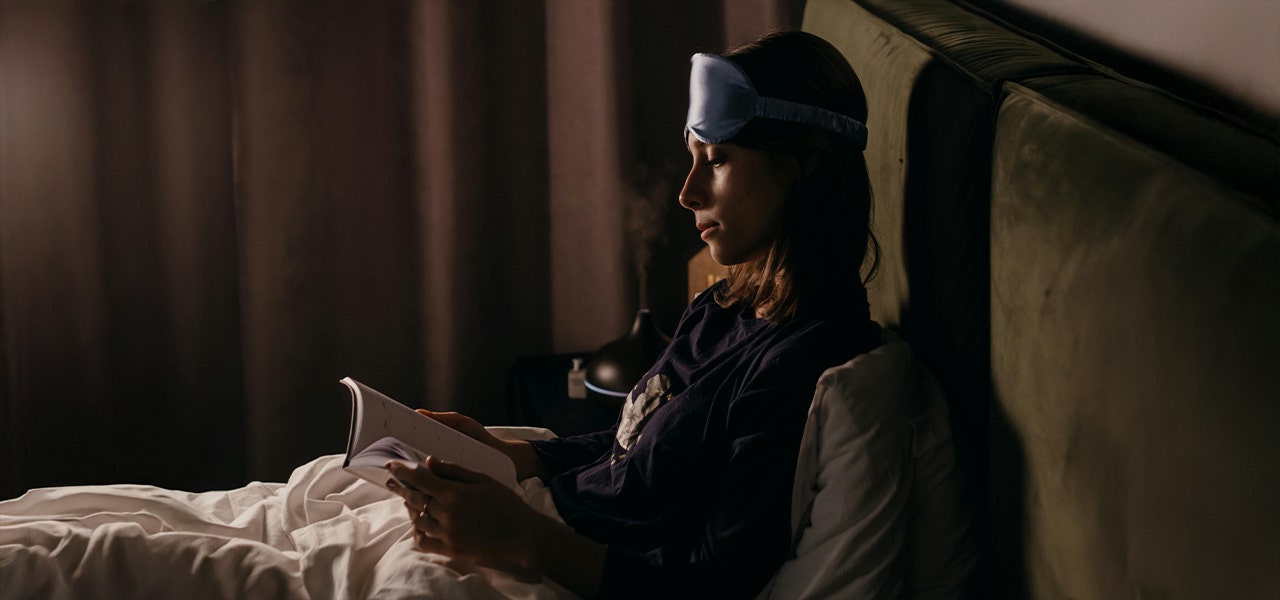

You’ve probably heard the phrase, “quality not quantity,” before. Spoiler alert: this applies to your sleep, too! Sleep quality differs from sleep quantity in that it measures how well you’ve slept – not how long. Because the truth is, it doesn’t matter if you were in bed for eight hours if the majority of that time was spent tossing, turning and waking up frequently.
It’s nearly impossible to achieve quality sleep when you can't sleep in the first place. In fact, it would be better to get a mere five hours of sleep if it were deep, restful, restorative sleep – AKA quality sleep – than to spend those eight hours tossing and turning.
What is Quality, Restorative Sleep?
So, what is sleep quality? Sleep quality is measured by a few different variables:
- What time you go to bed
- How quickly you fall asleep
- Time spent asleep compared to time spent awake while in bed
- How often you wake up or move during the night
- Your overall total sleep time
- How much deep sleep and rapid eye movement (REM) sleep you’re getting
Deep sleep and REM sleep are the most important phases of the sleep cycle. Deep sleep is the most restorative type of sleep. It should ideally make up 15-20% of your total sleep time. REM sleep is associated with dreaming, memory and creativity. Where deep sleep restores, REM sleep re-energizes – your mind and your body. Typically, you get more REM sleep during the latter half of the night. For ideal sleep quality, REM should make up anywhere from 5 to 50% of your total sleep time. If you wake constantly, then REM or deep sleep becomes interrupted which will negatively impact the quality of your sleep.
Signs You’re Not Getting Enough Sleep
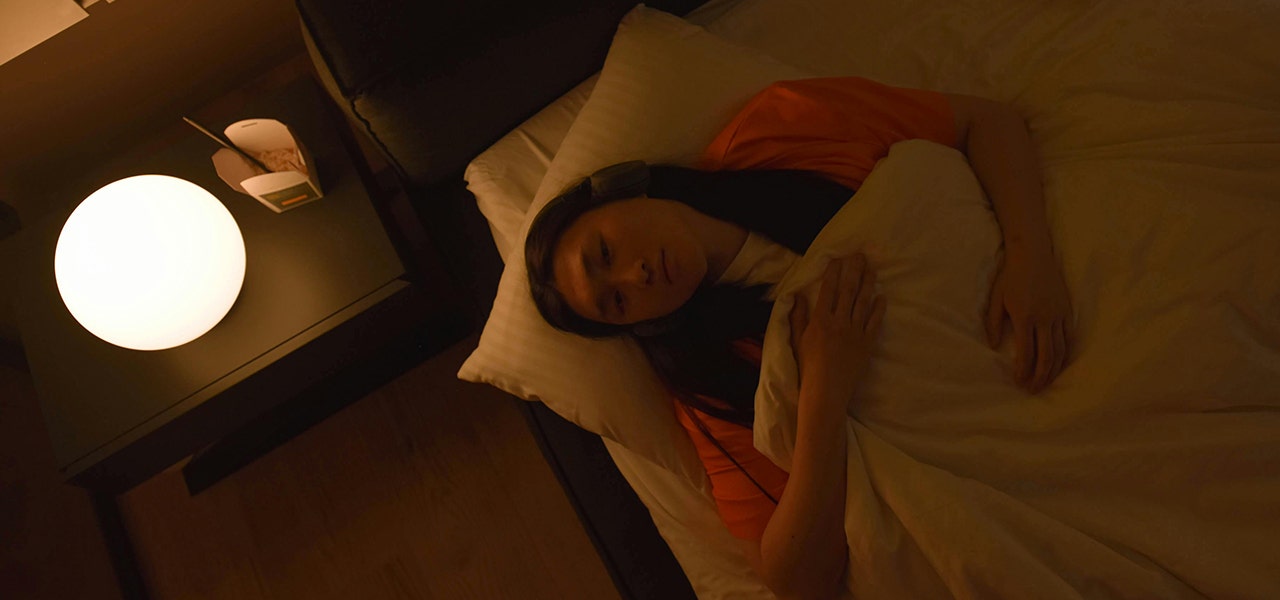

Beyond just thinking, "I can’t sleep," there are other signs to watch for. Insomnia – whether it’s difficulty falling asleep or waking frequently – can manifest in a variety of ways:
- Trouble falling asleep at night
- Waking up multiple times and struggling to go back to sleep
- Feeling tired even after hours in bed
- Experiencing daytime exhaustion and irritability
- Difficulty concentrating or focusing during the day
These symptoms often leave people wondering what you should you do if you can’t sleep. But first, it helps to understand why your sleep might be suffering.
Common Reasons You’re Tired But Can’t Sleep
If you’re tired but find yourself wide awake in bed, there is probably something affecting your circadian rhythm, sleep drive or both. From everyday habits, to underlying health conditions, several factors might be interfering with your rest. Here are some of the most common culprits:
1. Stress and Anxiety
Stress and anxiety activate your body’s fight-or-flight response and increase levels of cortisol. High cortisol levels at night can keep you awake at night by making it difficult for your brain to transition into a relaxed state needed for sleep.
2. Blue Light Exposure
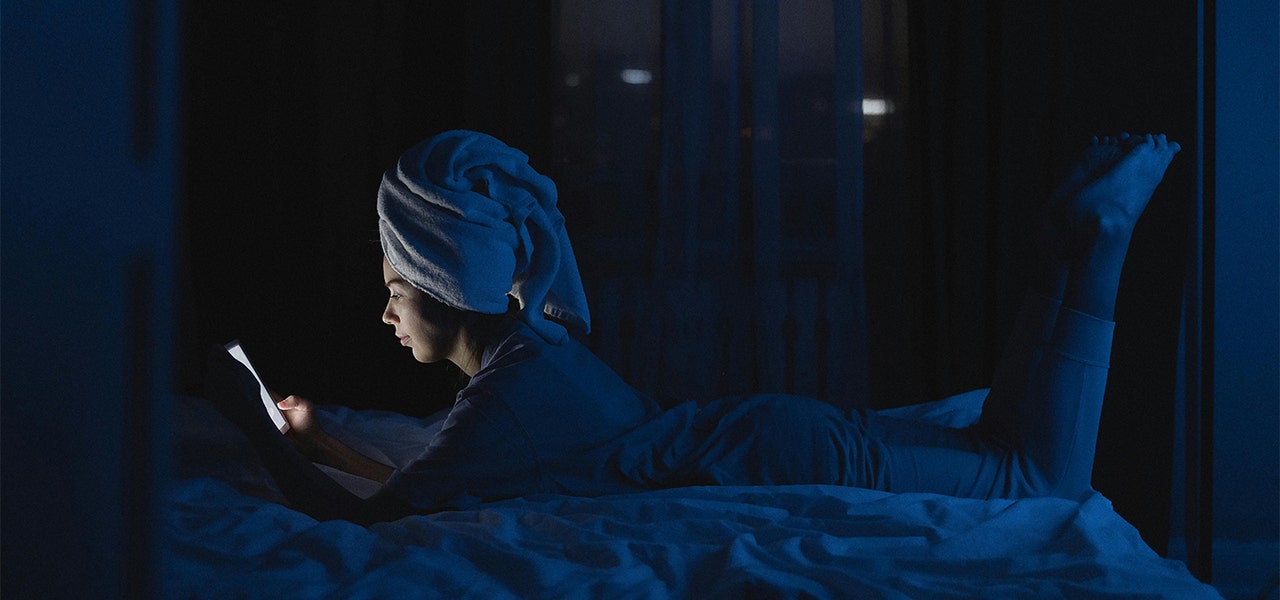

Late night scroller? It may be the reason you can't sleep. Scrolling through your phone or watching TV before bed exposes you to blue light, which suppresses melatonin – the hormone responsible for sleep. Studies have shown that this reduction in melatonin levels from blue light can delay the onset of sleep.
3. Alcohol and Caffeine
Certain dietary choices close to bedtime interfere with sleep. Caffeine can increase adrenaline and block sleep signaling chemicals. Though alcohol may cause drowsiness, it disrupts the sleep cycle when the drowsiness wears off later in the night when deeper sleep is more important. Similarly, eating spicy food close to bedtime is also linked to sleep disruption and higher rates of insomnia.
4. An Irregular Sleep Schedule
Inconsistent sleep routines can disrupt your circadian rhythm, making it harder to fall asleep when you need to. This is especially common for shift workers or anyone who stays up late on weekends, also known as “social jet lag” (sorry, night owls!).
5. Your Bedding and Mattress
Your sleep environment plays a significant role in your ability to fall and stay asleep. The wrong mattress can cause discomfort, disrupt temperature regulation and even expose you to unwanted chemicals. Organic mattresses and organic bedding are made with naturally more comfortable materials, promoting a better (and healthier) sleep experience. If you’ve been struggling to get restorative rest, it might be time to evaluate whether your mattress and bedding are truly supporting your sleep needs.
6. Underlying Health Issues
Health conditions such as insomnia, sleep apnea or restless legs syndrome can prevent restful sleep, even when you feel tired. These conditions often interrupt the natural sleep cycle, reducing the restorative benefits of sleep and leaving you feeling fatigued despite spending hours in bed. If you suspect that you are suffering from a sleep disorder or related health condition, talk to your healthcare provider – identifying the root cause is just the first step to finding your path to deeper, more consistent rest and helping you to reclaim your energy and focus.
What to Do When You Can’t Sleep
Can’t sleep? Don’t stress – short-term insomnia is a common experience, and there are plenty of ways to overcome it. By identifying poor sleep habits or environmental factors, you can create the ideal conditions for restful nights.
And fortunately, there are a number of things that you can do to help yourself when you can’t sleep. For instance, you can try:
- Breathing exercises
- Listening to soothing music
- Taking magnesium or melatonin supplements
- Relaxing with essential oils
- Herbal teas like chamomile or peppermint
And, while it may be tempting to do when you can’t sleep, don’t reach for your phone. (Unless you’re looking for sleep tips on the Naturepedic blog, of course!)
 BABY
BABY  KIDS
KIDS  ADULT
ADULT  LEARN
LEARN  STORES
STORES 